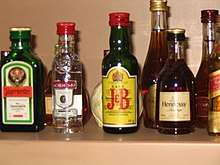Farmhouse ale
Farmhouse ale is an ancient European tradition where farmers brewed beer for consumption on the farm from their own grain, hops, and yeast. Most farmers would brew for Christmas and/or harvest time, but in areas where they had enough grain farmers would use beer as the every-day drink. This was in a time when it was safer to drink beer than water. Farmhouse ale has enormous variation in the ingredients and brewing process used, both of which follow ancient local traditions.
Today many microbreweries make beers they market as farmhouse ale, but in most cases the connection with the actual farmhouse brewing tradition is rather tenuous. In Finland, Estonia, and Lithuania, however, there are commercial farmhouse breweries that brew on the farm according to the ancient traditions. Some of these still have the original farmhouse yeast.
Many countries have their own variant:
- Belgium: Saison
- Finland: Sahti
- France: Bière de Garde
- Sweden: Gotlandsdricka
There are other farmhouse ales such as
- Denmark: landøl.
- Estonia: koduõlu[1]
- Latvia: miezītis.[2]
- Lithuania: kaimiškas[3],
- Norway: maltøl[4]
- Russia: derevenskoye pivo.
References
- ↑ Brewing: In Estonia, a Farmhouse Tradition Survives, Martin Thibault, BeerAdvocate Magazine, Oct 2016
- ↑ Miezītis Stiprais
- ↑ Lithuanian beer - a rough guide, Lars Marius Garshol, 2014, ISBN 978-1502738523
- ↑ Maltøl, or Norwegian farmhouse ale, Beer, 2014-10-11


